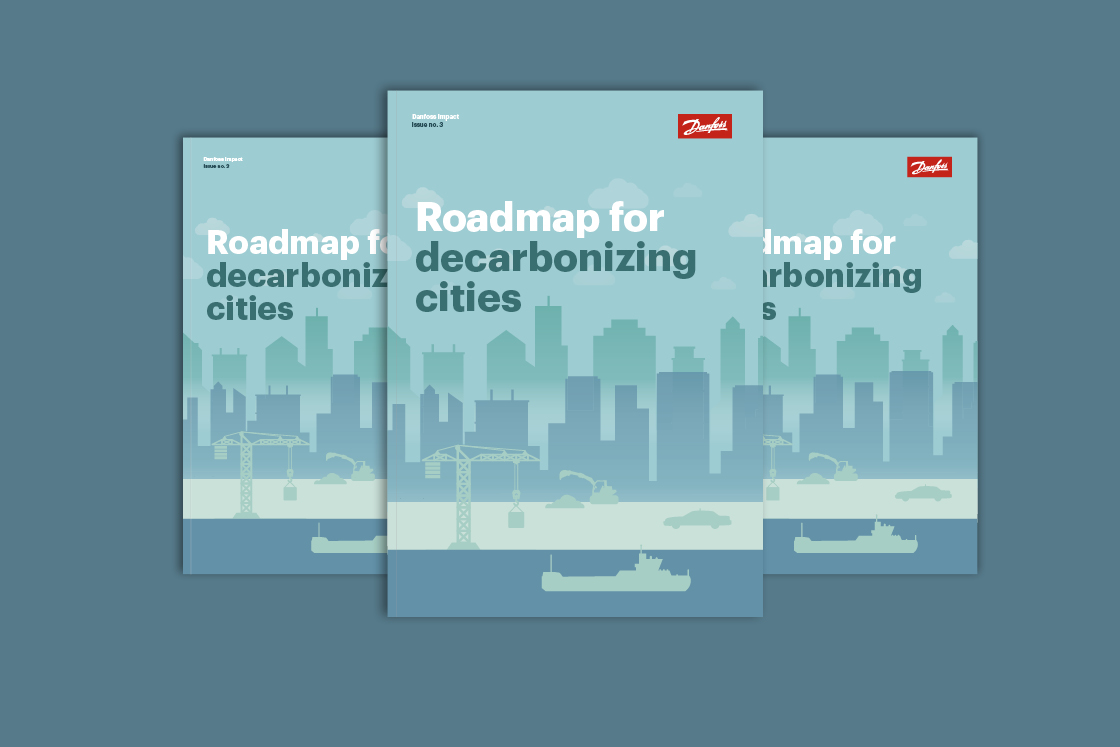Construction machines worldwide emit the equivalent to the emissions from global aviation with 50% of these emissions coming from excavators alone.
Immediate attention to the possibilities for reducing carbon emissions from heavy vehicles such as construction vehicles is necessary to reach global climate goals, according to the latest whitepaper from Danfoss.
Launching the new Danfoss Impact whitepaper at the UIA’s World Congress of Architects in Copenhagen today, Domenico Traverso, President, Editron and Incubation Division, Danfoss, says the key to reducing the footprint of these machines is to implement energy efficient technologies that can immediately reduce the diesel use in excavators and at the same time address some of the challenges for electrification.
Cities account for 70% of global carbon emissions. Ultimately, the battle against climate change will be won – or lost – in cities. Construction machines worldwide emit a staggering 400MT of CO2 annually, which is equivalent to the emissions from international aviation. Excavators alone account for 50% of these emissions. While passenger cars and smaller construction machines can more easily be made battery-electric and charged with renewable energy, the reality is more complex for excavators and other heavy-duty vehicles.
Compared to smaller vehicles, excavators operate under much more demanding conditions and require longer working hours between charges. This requires extremely large batteries to match the productivity of their diesel counterparts, resulting in resource-intensive production and higher upfront costs. Often, it is simply neither technologically nor economically feasible for the heavy machines.
Furthermore, many excavator work sites lack the necessary charging infrastructure to support electric excavators. Large sites such as quarries often require field battery-swapping at the beginning and end of each shift and subsequent charging at depots. Operational challenges arise due to the immense weight of the batteries, posing logistical hurdles.
By improving efficiency, the requirement for batteries can be reduced, along with charging power demands and renewable energy generation needs.
Domenico Traverso, President, Editron and Incubation Division, Danfoss, says: “As an industry, we must take responsibility for the climate challenges, and we must be more vocal about the technological opportunities and solutions. The construction sector is very cost-sensitive, and we need to decarbonize in the most cost-effective way. Otherwise, it will not happen at scale. And this is where efficiency becomes a key enabler.”
The Danfoss Impact whitepaper investigates the case of construction sites and the readily available technologies that are rapidly transforming the construction industry, making low-emission construction sites achievable.
Today's excavator systems operate on diesel at a mere 30% efficiency, with 70% of engine energy being wasted. Danfoss emphasizes the significant potential for energy reduction by introducing measures such as variable displacement pumps, digital displacement, variable speed pumps, and decentralized drives. These technologies, along with energy recovery systems, can enhance efficiency and reduce energy consumption.
Implementing energy efficiency measures enables excavators to accomplish more work with smaller engines and less fuel, reducing the battery capacity required for electrification by up to 24.8%. The rapidly evolving technology can deliver fuel savings of 15-30% in excavators over 15 tons while simultaneously increasing their work capacity. In the near future, these measures can be applied to excavators of all sizes, potentially achieving fuel savings of up to 50%.
By prioritizing energy efficiency and exploring electrification possibilities, the industry will contribute significantly to the decarbonization of heavy-duty vehicles and pave the way for a sustainable future.
For further information please contact:
Amanda Chick, Global PR Lead
Ph: +357 9514 5470
Email: amanda.chick@danfoss.com

